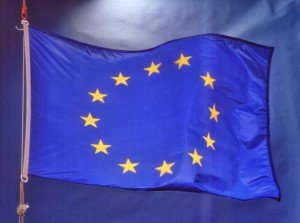They say “a chain is only as strong as its weakest link”. And what would have demonstrated that better than the ongoing turmoil within the world’s most influential monetary union. Except that in the case of the European Union, it’s perceived ‘weakest link’ has created a domino effect that has given rise to multiple such weak links. Yes, the sovereign debt crisis of Greece has sparked off a ‘ripple effect’ and it seems Spain, Portugal and Italy are also following suit. Even though Greece was almost saved from an immediate default in March 2012, a future threat of default cannot be ruled out due to the lack of a stable political climate. Notwithstanding speculation about the southern European countries (specially the GIIPS countries) leaving the Eurozone and the northern European countries forming a ‘northern euro’, this article would specifically attempt to analyze the influence of a Greek Exit, or ‘Grexit’, on the ailing German shipping industry. The reason for this is 2 fold: the possibility of a Greek exit is the highest among all these economies (in September 2012 Citibank analysts pegged the possibility of a ‘Grexit’ at around 90% for the next 12-18 months) and once Greece exits, the rest of these economies might also follow suit, especially in the light of a financial system collapse in these countries and a flight to safety by its depositors.

The German shipping industry: huge tailwinds?
Exposure to the shipping industry is one of the reasons Moody’s affirmed its negative outlook for German banks in November, 2012. The reason cited by the ratings agency was that the global shipping industry “faces weakened demand amid sluggish global economic growth and evolving structural overcapacity.” It also said that the amount lent by the 10 largest German banks to the global shipping industry was almost 60% of their capital. The outlook on Germany’s shipping industry is worse: the industry is anticipated to face a wave of bankruptcies over coming months in the face of limited funding and a huge downfall in the container trade. Ironically, both the German shipping industry and the financial services industry share some of the same malaise – high government incentives, complex financial instruments and huge underestimation of risk possibilities. At this point, it would be interesting to gauge the overall health of the German shipping sector through Porter’s 5 forces framework.
Porter’s 5 forces: how sick is the German shipping sector really?
Supplier power: The biggest impediment for the industry currently is to secure funding from the banks, which is fast becoming a challenge in the face of drying up of the credit market. Over 100 German ship funds have stopped operating while another 800 funds are at the brink of insolvency. (“If you don’t have a line of credit already, nobody is going to give you one. We’re suffering a liquidity crisis, and it’s almost impossible for single vessel owners,”). For example, Commerzbank, the world’s second largest provider of ship finance will be shutting down its twenty billion euro ship funding operations. The main reason for this is the high capital and liquidity requirements under the Basel III banking regulations. Basel III regulations have also ensured that most of the top 20 banks for the shipping industry have completely stopped their operations. Thus the bargaining power of the suppliers, specially the banks, is quite high in this industry.
Buyer power: Germany is the market leader in container shipping, with almost 40% share of the world market. However, the Germans over invested in the boom time and since then have been suffering from a burden of debt and over capacity of ships. Additionally, the freight rates have dropped dramatically, creating a lot of downside spiral on the demand side. For example, the Clarkson’s ClarkSea Index for maritime freight rates has halved since mid-2010 and has fallen by 80% since 2008. The Baltic Dry Index for bulk freight has shown even worse results, with a fall of around 90%, with numbers reflecting post Lehman times. The container flows into the Mediterranean region dipped by around 16%, reflecting the recession especially in the southern parts of Europe. With such declining freight rates, the buyer power is quite high.
As a consequence of dwindling business and dried up cash flow, the owners are forced to sell their ships. This increases the supply of these ships in the market, creating a further downward pressure on the prices. And while new cargo ships sell for a lot of money, the older, smaller vessels are sold for no more than the value of scrap metal. And some of these ships are sold to the Greek shipping companies themselves. Even here, the seller does not have too much say while setting the prices; it’s the buyer who decides.
Existing competition: With over capacity and under funding, the German market is already strife with competition among the existing players. However, there is an anticipation that the Greek shipping industry is also poaching on the business of their German counterpart. Moreover, in Greece the shipping industry benefits from huge tax incentives and hence suffers less from liquidity crises. Moreover, the Greeks are now buying back ships that they had sold at the peak of the boom, but at a fraction of those prices, thus making huge profits. For example, the Greek shipping group Costamere has been expanding its fleet since 2011 and has already spent 764 million euros on it. This implies that both domestic and international competition is high.
Substitutes: Container shipping is still considered the cheapest form of cargo transport over long distances. Even though alternatives over rail and air are possible, they are really not as cost effective as shipping and hence the threat from substitutes is low.
Threat of new entrants: For the shipping industry in general and the German one in particular, the industry is quite capital-intensive and with the low levels of funding due to insolvent ship funds, new entrants would find it increasingly difficult to break the entry barrier in this industry. Hence the threat of new entrants is low.
According to the German shipping experts almost “two-thirds of the country’s marine fleet is in financial distress”. And Greece, with its natural coastline and an already strong shipping industry, is adequately positioned to leap frog the Germans and take pole position in container shipping. And if under these circumstances Greece chooses to exit the European Union, it will be celebration time for the Greek shipping industry. According to Forbes analysts, a ‘Grexit’ will devalue the Greek currency by a large amount, even to the tune of 60%. This, while negatively impacting the Greek imports bill (which will become much more costly), will make the Greek shipping industry much more price competitive on a global level. Additionally, the fact that the Greek ship owners are safely cushioned away and are much less impacted by the political instability in the country would protect them from negative consequences of the exit of Greece. However, one of the challenges that the Greeks will face is in the oil prices which would become much more expensive, thereby pushing the margins down. But the Greek shipping industry competes mostly on cost leadership and less on product differentiation – which already makes them compete on low price margins. Thus the rising input prices would be offset by the increase in business volume of the Greek shipping industry if Greece chooses to exit the Eurozone.
Ghemawat’s Adding value scorecard: offering a way out?
So how can the German shipping industry counter the imminent threat from its Greek counterpart? Former Harvard Business School professor Pankaj Ghemawat’s Adding Value Scorecard offers a possible solution. In his book ‘Redefining Global Strategy’, Ghemawat proposes the Adding Value Scorecard – a framework to increase the competitiveness of firms in a specific industry. According to it, there are 3 major strategies by which a firm can increase its economic profit – through increasing volumes, cost leadership or product differentiation.
Applying the framework to the German shipping industry, it can be said that it will be very difficult for German firms to implement the strategy of volume. This is because there is already over capacity in the home market and the global market is suffering from a sluggish growth period. Differentiation is also a challenge, since the German firms don’t have adequate funds from the banks to buy quality vessels. Thus cost leadership seems an effective strategy left for the Germans if they wish to compete globally.
But implementing such a strategy will prove to be a challenge in the face of a Greek exit, primarily because the resultant uncertainty in the market would further spiral up the input prices for these German firms. In such circumstances, it might be prudent for the German firms to pursue non-market strategies to try and counter the Greek competition.
Baron’s 4 I: beating the competition through non-market strategy
In his paper ‘Integrated Strategy: Market and Nonmarket components’, Stanford Professor David P. Baron proposes the 4 I framework for a firm to use non-market strategies to counter competition. According to him ‘one purpose of a non-market strategy is to shape the firm’s market environment’ and he argues that this non-market environment is characterized by 4 I’s: issues, institutions, interests and information.
Interpreting this framework in the context of the German shipping industry, the issue here is the impending threat to this industry from its price-competitive Greek counterpart in the advent of a ‘Grexit’. There are three institutions relevant in helping the German shipping industry thwart this competition – the EU, the German Government and the German banks. The former would base its decision on the overall progress of its member states while the latter two would be more interested in enhancing the economy of Germany. The interest of the main rival (the Greek shipping industry) is to thwart the German competition by effectively utilizing its devalued currency to increase price competition in the event of Greece’s exit from the Eurozone. Thus for the German shipping industry to beat the Greek competition, it is extremely important to form an association to have a unified voice while lobbying with the German Government. To help lobby with the Government, the German shipping industry should advocate its pole position in the global shipping industry and its contribution made to the GDP of the country. Additionally, it should quote the number of ship funds that have been discontinued operations due to higher capital and liquidity requirements. This is direct evidence that forcing banks to raise capital ratios too high too soon can choke off lending to the real economy. This might dispose the German government to lobby with the EU to give the banks certain incentives for taking the exposure to the shipping industry on their books. This is particularly important for the Germans since the Greek firms already have access to funding from various sources, one of them being China. For instance, Chinese premier Wen Jiabao pledged 5 million dollar loan to the Greek shipping industry two years ago to consolidate the Chinese position in the EU market.
Evidently, the German shipping industry has seen better days. With dwindling business, liquidity crunch on the supply side and the impending threat of ‘Grexit’, it is indeed placed in a precarious position. If cost leadership is to be maintained in the industry, the firms better come together and lobby with the government to ensure better market conditions or fall prey to the juggernaut which is called the ‘Greek shipping industry’.

































